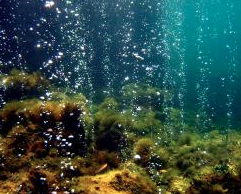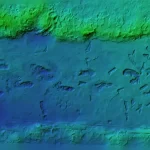New Scientist
Image: Jason Hall-Spencer
It’s the survival of the smallest. As ocean acidification begins to bite, some marine species might adapt by shrinking – threatening the profitability of commercial fisheries.
Carbon dioxide emissions lead to ocean acidification. When atmospheric CO2levels soared in Earth’s distant past, life sometimes experienced mass extinctions that wiped out most species and shrunk many of the surviving ones.
Many marine shellfish, corals and fish that made it through the turmoil reduced in size by one-third or more, and remained small for tens of thousands of years, says Richard Twitchett at the Natural History Museum in London.
This response has been dubbed the “Lilliput effect” – a reference to the fictional island inhabited by tiny people in Gulliver’s Travels by Jonathan Swift. Now it seems that the Lilliput effect is poised to return, as a direct result of present-day ocean acidification. Read more on newscientist.com…








